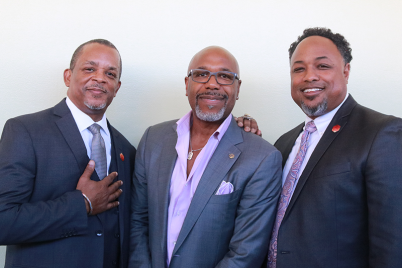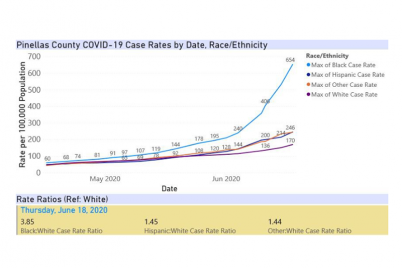ST. PETERSBURG — Award-winning journalist and author Michele Norris was in St. Petersburg Oct. 15 at the Foundation for a Healthy St. Petersburg as part of their Speakers Who Inspire series.
Norris is well-known to millions of Americans as the longtime co-host of National Public Radio’s “All Things Considered” news broadcast. Her appearance was the first public event at the Foundation’s new Center for Health Equity at 2333 34th St. S.
Norris talked about creating The Race Card Project, which encourages people to explain their thoughts on the word “race” in six words. The project has become a worldwide movement, collecting ideas and reflections from a diverse global audience.
Asked how the project has evolved over the 10 years since its creation, Norris responded that increasingly, white participants have remarked about their perceived invisibility and marginalization. This coincided with the election of Barack Obama and conversations at the time about the changing American demographics and the dawn of a “post-racial” society.
Norris said she uses her journalist’s impartiality and curiosity to engage with people whose experiences and views are difficult to hear. She posited that in a world where whiteness has always been the default power setting, people accustomed to privilege become profoundly unsettled that the status quo is challenged. However, off-putting these attitudes may be, she suggested that ignoring their reality comes at a price.
Norris also addressed some of her family history and the deep patriotism of her father, a World War II veteran from Birmingham, Ala. The elder Norris migrated to Minneapolis following an altercation with Birmingham police at a Black voter education drive, where he was shot. In her book, the “Grace of Silence,” she investigates the incident, which she was never told about until after her father’s death.
During the audience Q and A, Norris was asked for advice about encouraging civic engagement and greater voter turnout locally, particularly among African-American residents. She said that people sometimes use the lack of a “perfect” candidate as an excuse for poor voter turnout.
“When the food’s not perfect, do you stop eating,” Norris asked. “When the air isn’t perfectly clean, do you stop breathing? Everyone must vote, no excuses, no exceptions.”








